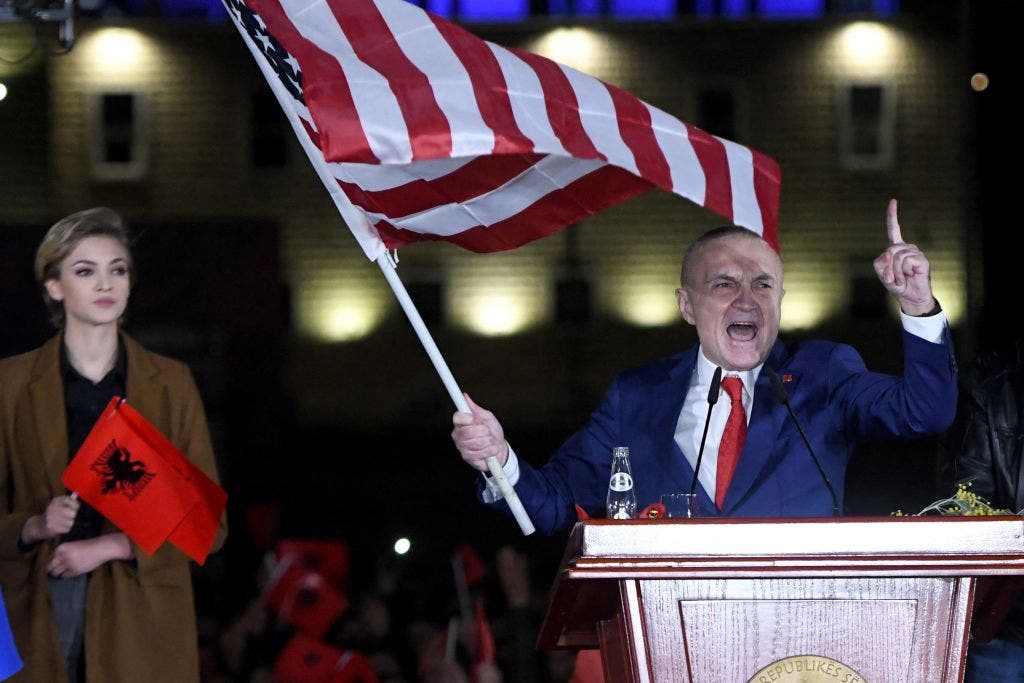Former President Ilir Meta of Albania has expressed concerns that the United States is forgetting about Albania and the Western Balkans, despite their status as important European and NATO allies. Meta warned that outside actors such as Russia are attempting to hinder the region’s EU integration and NATO membership by creating a vacuum to undermine European values. He fears that the Balkans, which has made significant contributions to U.S. foreign policy goals, is suffering from a lack of attention from Western policymakers.
While the U.S. is focusing on other global issues such as supporting Ukraine against Russia’s invasion and backing Israel in its conflict with Hamas, the Balkans feels neglected. Meta’s concerns were further heightened by the news that a sanctioned individual with close ties to Russia has joined Serbia’s new government, indicating that Serbia is maintaining pro-Russian sentiments despite seeking EU membership. The U.S. State Department expressed disappointment over this development and emphasized its commitment to supporting countries in the region to realize their full economic and democratic potential through Euro-Atlantic integration.
Meta also warned about the dangers of the “Open Balkans” initiative, which aims to facilitate the free flow of people and goods across the Balkans. He believes that this initiative, though seeming beneficial on the surface, is actually an alternative against European integration and will strengthen regimes like Serbia that undermine democracy. In response, Serbia’s minister of foreign affairs defended the initiative, stating that it fosters stability, prosperity, and cooperation in the region and supports democratic efforts. However, critics argue that Serbia’s engagement in the region may not align with U.S. and European interests.
Observers, such as former Albanian ambassador Agim Nesho, have criticized Serbian President Aleksandar Vucic and Albanian Prime Minister Rama as undemocratic, corrupt, and destabilizing leaders who do not advance U.S. or European interests. The lack of a clear U.S. strategy regarding Serbia’s disruptive policies has allowed Vucic to leverage Serbian influence in Bosnia-Herzegovina and maintain a frozen conflict in northern Kosovo. Critics claim that Serbia’s alignment with Russian interests through the Open Balkans initiative could further destabilize the region and bolster Moscow’s influence in the Balkans.
Russia’s influence in the Balkans, particularly through its regional allies like Serbia, has raised concerns about inciting violence and creating instability. Putin is leveraging crises in Kosovo and Bosnia and Herzegovina to divert attention from Ukraine and position Russia as the key mediator in the region. The plan aims to strengthen Moscow’s regional influence and provide leverage over Western powers. Despite these challenges, Meta emphasized the importance of the United States to the people of the Balkans as a symbol of democracy. He urged the U.S. not to forget the significance of the Balkans for Europe and reiterated Albania’s willingness to be a long-term partner in addressing global challenges.
In conclusion, the situation in the Western Balkans remains complex, with concerns about Russian influence, lack of attention from Western policymakers, and issues regarding democratic governance. The region’s political dynamics, including the Open Balkans initiative and Serbia’s alignment with Russian interests, highlight the challenges faced by countries like Albania in promoting stability, democracy, and Euro-Atlantic integration. As leaders and analysts continue to assess these developments, the role of the United States and its allies in supporting the region’s aspirations for democracy and security will be crucial in shaping the Balkans’ future.













